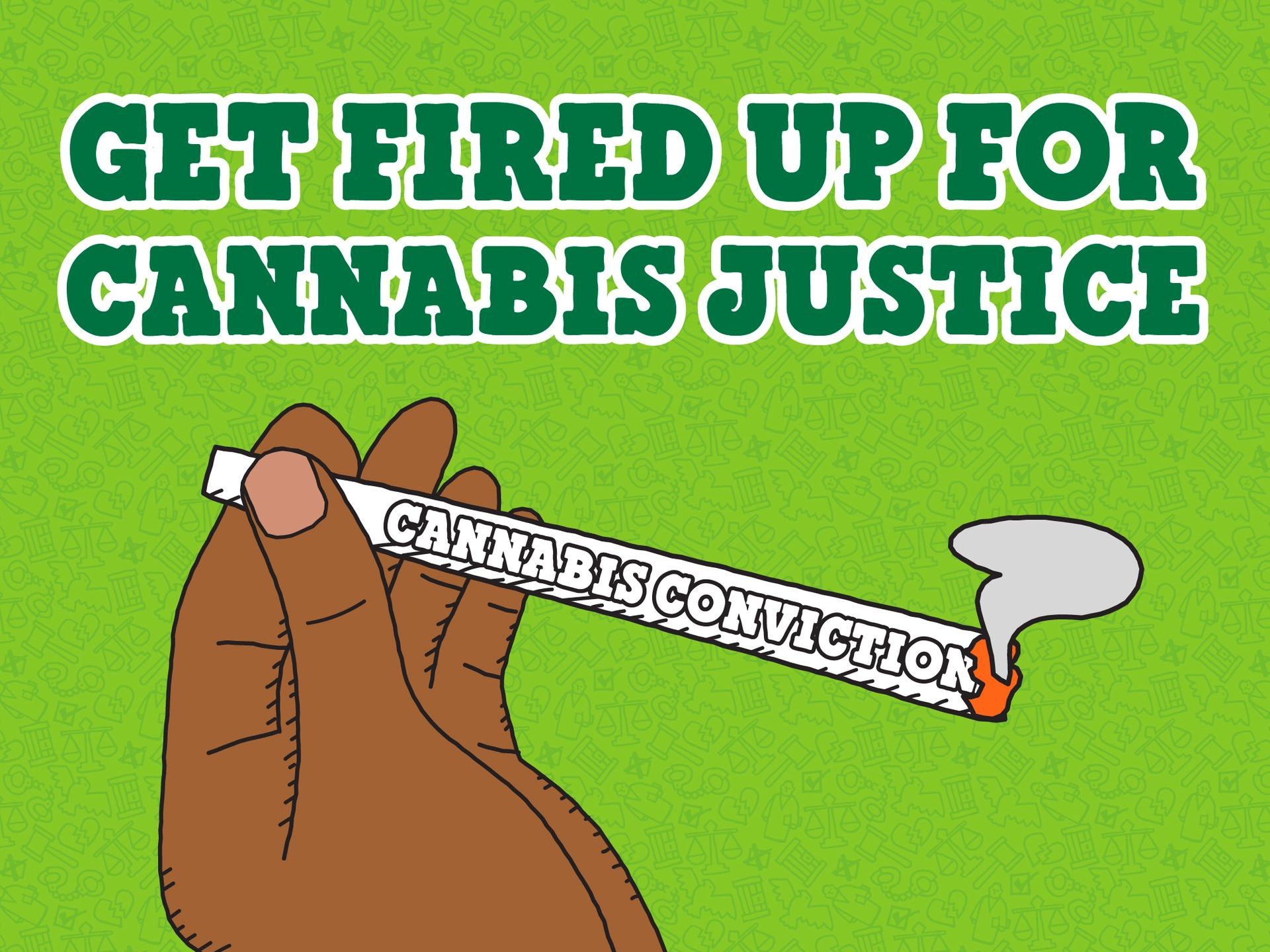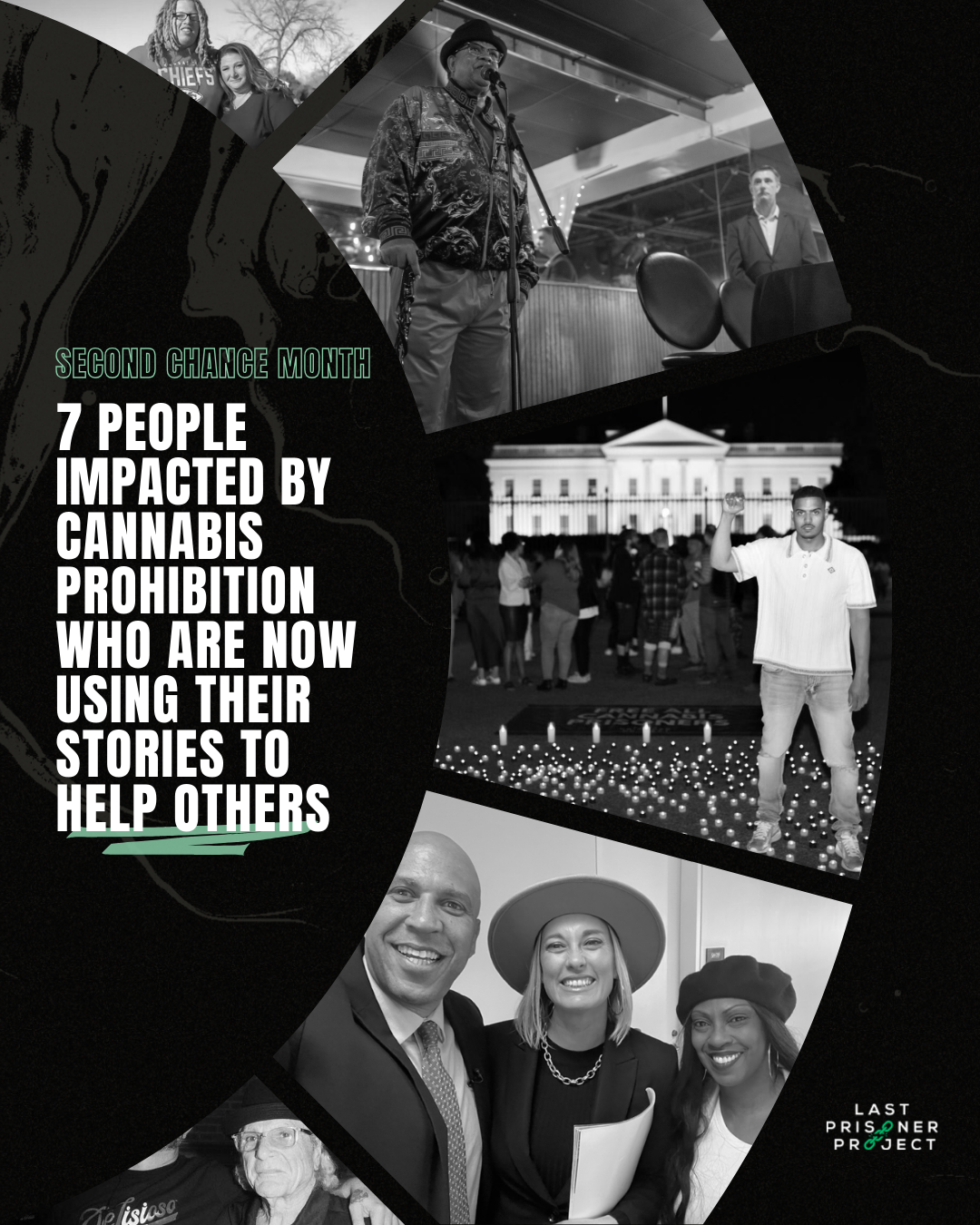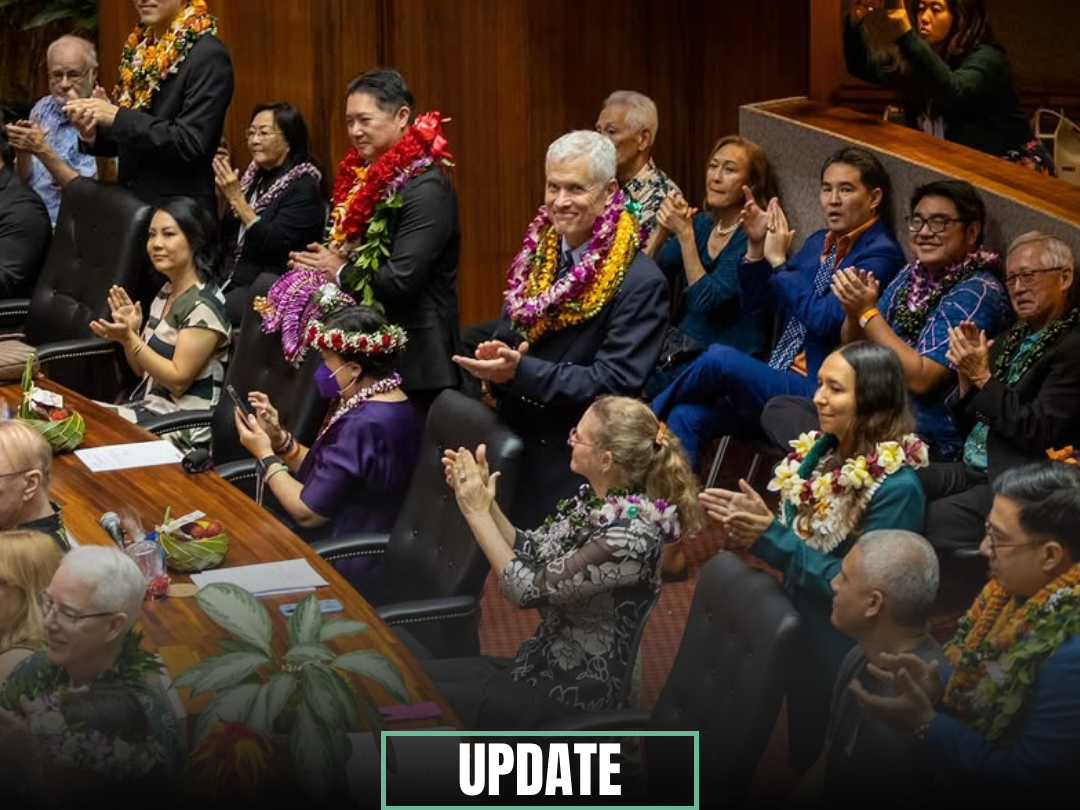Jeremy Grove Shares His Reentry Journey After Serving Over 4 years for a Nonviolent Cannabis Offense
Jeremy Grove was released from prison in January of 2023 after serving 4 years for a nonviolent cannabis offense. Before his sentence, Jeremy spent 3 years pre-trial waiting for his case to be resolved. For this interview, Jeremy joined LPP Director of Impact, Mikelina Belaineh, via Zoom from his home in South Carolina, where he is working to rebuild his life and reconnect with his loved ones. Parts of this interview have been edited for length and clarity, and have been reviewed and approved by Jeremy.
MB: Tell me your story of cannabis criminalization, how did you get to be here with me today doing this interview?
JG: In 2013, I was living in South Carolina working as a bartender, and I was planning to move to Los Angeles to get into the cannabis industry with a friend of mine. The week I was supposed to move, I ended up meeting my daughter’s mother. Long story short, I decided to stay in South Carolina so we could try to make it work. My friend went ahead with the move and got into the California industry. Once he was out there, he hit me up and asked if I’d be interested in selling some of his product in South Carolina. It was simple, he would send me a pound of product, I would get rid of it, and then send him the money back. That was it. I sold weed because I really love it and I wanted to get involved in the legal industry. I was 19 in college when I first smoked weed. I was a baseball player and had never done drugs, didn’t drink alcohol. One day I had an anxiety attack on the field one day, in tears, full panic, in a complete mental breakdown. After that, I couldn't even throw the ball back to the pitcher, I was emotionally messed up. That summer, I smoked weed for the first time. It changed everything for me, I was able to relax and calm my emotions. Because of my case, I haven’t been able to smoke, but I’m able to take the mindset cannabis gave me access to and use it to self-regulate and keep calm.
JG: In the summer of 2016, I was pulled over by State police. They found .1g of cannabis and arrested me for simple possession. But it was never about simple possession. A detective showed up and told me that earlier that day, the police had pulled over a woman who was leaving my house and found drugs on her. The drugs they found had nothing to do with me though, they were drugs that had been prescribed to her but were not in the original bottle. However, because two cars leaving my residence were found with drugs, the detective said they had probable cause to search my home. I was booked into the jail and bail was set at $15,000. I was able to bail out and get a lawyer. My lawyer told me that even though my case was with the State, the Feds had taken an interest in it and wanted to talk to me. I didn’t want to talk to them though. After my first arrest, the Feds started sending target letters to my daughter’s Mom and other folks in my personal life. Target letters are letters from the Feds that say, “Hey if you don’t talk to us, we’ll arrest you too.” It’s pure intimidation. So, my daughter’s mother and I talked about it. One of us needed to be there for our daughter, we couldn’t risk both of us getting arrested. So, she went in and told the Feds everything she knew.
JG: In March of 2017 (a year after my simple possession arrest) the Feds came to arrest me for the same case. They put on a whole show, even though they knew I wasn’t selling weed anymore. They knew I had my State case pending. When the Feds arrested me, they busted through my door early in the morning with multiple officers, guns up. I remember flashlights coming through my window, and loud pounding on my door. My daughter was about 18 months at the time and was sleeping next to me in bed. They put me in handcuffs in the kitchen as she watched in tears. They called my sister to come and pick her up.
JG: I couldn’t understand why they busted in the way that they did. The state had put my case on the back burner because they knew the Feds were going to get involved. My lawyer had talked to the prosecutors, and we had come to an agreement that the Feds would let me know when I was indicted, and then I would self-surrender (turn myself in). Instead, they treated me like a dangerous criminal and subjected me and my daughter to unnecessary trauma. I know a lot of people on the outside think drug dealing means you’re dealing with guns. But honestly, the only time I ever encountered a gun is when “the good guys” had a gun to my face. I think they were punishing me because I refused to talk and cooperate with them. They put me through that embarrassment in the hopes that I’d get scared and start working with them. They made sure to book me into jail on a Friday, which meant I had to spend the weekend locked up. I bailed out the following Tuesday and had spent 2 years pre-trial waiting for my case to reach disposition.
JG: I knew I was going to go to prison. As soon as the Feds are involved, there’s no getting out of their sights. If they want you, they got you. I was living like a normal person, working two jobs, paying bills, and paying rent. I obviously couldn’t sell weed because of my case, so I was doing whatever else I had to do to get by. I did this for 3 years, knowing that I had a prison sentence hanging over my head. People think that those of us who sell cannabis have never had other jobs. I’ve worked multiple jobs my whole life, selling cannabis is just something I did to help support my livelihood. For the 3-years pre-trial, I couldn’t make any plans for my future. I couldn’t accept any kind of advancement opportunities, I couldn’t really date, because I knew I was going to prison for a significant amount of time. So, the 4-year prison sentence I served has been more like 7 years of punishment. Once I was incarcerated, despite the circumstances, I felt like I could finally start moving on with my life.
MB: Can you tell me about your incarceration experience?
JG: I feel lucky that I got to spend most of my sentence at a camp, which is a minimum-security facility. Depending on what level of facility you’re at makes a big difference in what kind of experience you have. I did have to spend 14 months in the SHU (“Special Housing Units” though, which is its own hell. The SHU is the Fed's version of solitary confinement. You do have a cellmate… but it was like living in a bathroom with another person for 14 months. When I got sent to the SHU, Covid hit right after, so we were stuck in there. It was terrible, but I still think it was better than being in the medium and high-security penitentiaries. We were stuck in the SHU for all of Covid lockdown. We had no sense of what was going on in the outside world. Some days we weren’t sure if staff were even going to come to work, or whether anyone would be there to run the facility. I relied on my sister who would print news articles and send them to me in the mail. She was a godsend; she wrote me every single day. The relationship that we developed through writing kept me sane. The prison wouldn’t let us have access to newspapers or magazines or anything to help us keep up with the outside world.
JG: I was lucky that on my very first day in prison, I met a guy, his name was G. Meeting him changed my life for the better. He explained to me that you can view prison as negative, take it as punishment, and hate it every single day. Or I could use it to spend 4 years trying to better myself for when I get out. So, most of the time I was there, I viewed my experience as an opportunity to work on myself. It made my experience better and gave me an attitude I didn't have for those 3 years leading up to prison. I started writing, wrote my first novel while incarcerated, and now have a blog with a lot of readers. My book is titled Legalized and is a fiction novel exploring the lives of characters living in a world where drugs have been legalized. I am grateful for my editor who supported me while I was incarcerated and encouraged me to write no matter what circumstances I was dealing with. I would send her my writings and then she would transcribe them to be organized for the blog and book.
MB: How has it been navigating Re-entry and life after incarceration?
JG: I am very lucky to have a community that supports me. My mom had bought me a car before I got out to help me with transportation, and I got a job working as the operations manager for my friend's moving company, so I haven’t had to go and apply for jobs and deal with rejection because of a felony record. My daughter's mom was also a huge support. She kept me and my daughter in contact while I was incarcerated, answered the phone every day so I could talk to her for 15 min. She even let me use her address to get released to Charleston so that I could be close to my daughter when I got out. Last Prisoner Project gave me a re-entry grant which helped get me on my feet. I don’t know how I would have been able to get housing without that. I was lucky enough to meet someone who had a room they were willing to rent to me, which isn’t easy as a felon. Because I had the grant money I could zelle her right away and had a place to live right after being released. Also, I want to share that I was inspired by the Last Prisoner Projects writing program. Random strangers all over the country were sending me letters. Like, guys in prison do not get mail like I got mail. Every time I would get a letter from someone saying, “Hey, I've read your story and we support you. We believe in cannabis that way. You know we're fighting for you”—it meant a lot. It’s hard in there. Freedom Grow is another cannabis advocacy organization that has been a huge support to me throughout my journey.
JG: My biggest struggle since getting out is just people can’t see past my felony record. People google my name, and then automatically want nothing to do with me. They don’t care what my story is and aren’t willing to see me for who I am. They just see me as the felon I am on paper. Google makes life really difficult. People think I’m a “money launderer” because of my cannabis charge and how it is portrayed when they look me up. What they don’t understand is there's no way to sell weed without technically laundering money. Because you can't claim what you're buying, because it’s illegal at the federal level. I can’t put money in a bank account to pay for the weed that the guy had sent me. The Feds attach money laundering to drug charges, especially in weak cases, so that if weed becomes legal, they can keep you incarcerated on the money laundering charge. They do that with guns too, they love to attach a gun enhancement. People don't realize that they don't even have to find a gun. They can say somebody saw you with a gun and they’ll add the 2-point enhancement to your sentence. When I explain how the Feds work to people, they just don't believe me. They can charge you for drugs they never found and will “project” the amount you had based on your bank records. That's what people in the Feds like to call “ghost dope”.
JG: My daughter has friends whose parents don’t want me around their kids, which impacts my ability to spend time with her. I worry about how she may come to perceive me because of the adults. It’s also made dating and social life difficult. Dealing with the stigma is frustrating. I’m in South Carolina, so everybody here who smokes is doing it illegally, but they see me as a bad person because of my felony. People say, “It’s different because I just smoke.” I’m like, but who sells it to you like? They’ll say, “Just my friend.” I am that friend. They don’t see how it’s politically relevant to their lives. People need to understand how the people who are providing you weed are risking their lives for you every single day. We’re front-line workers.
JG: In this country, we talk so much about like hate and animosity, but I've never sat in a room and smoked a blunt with a bunch of people, and everyone's not getting along. I think that's one of the reasons the government doesn't want people to have free access to it. It brings people together and it creates a bond that they don't want people to have. They want us to stay fighting so they can keep power. That's somewhat of a realization I've had. They have statistics saying an overwhelming majority of U.S. adults think cannabis should be legalized right? (88%, see data.) What else do an overwhelming majority of Americans agree on? I can't think of anything, certainly not a presidential candidate. But, despite this rare area of public consensus, Cannabis is something our government is still not sure about. They’re like “We need a little more data before we figure it out, before we can decide.” This isn’t about a bunch of potheads wanting to smoke to get high, that’s just the story and stigma that’s been created.
MB: How are you healing from your experience of cannabis criminalization?
JG: In stressful situations, I can always just think, “Well, at least I’m free” you know? It helps make everything else feel like not as big of a deal as it may be for other people. It's become my way of dealing with adversity.






